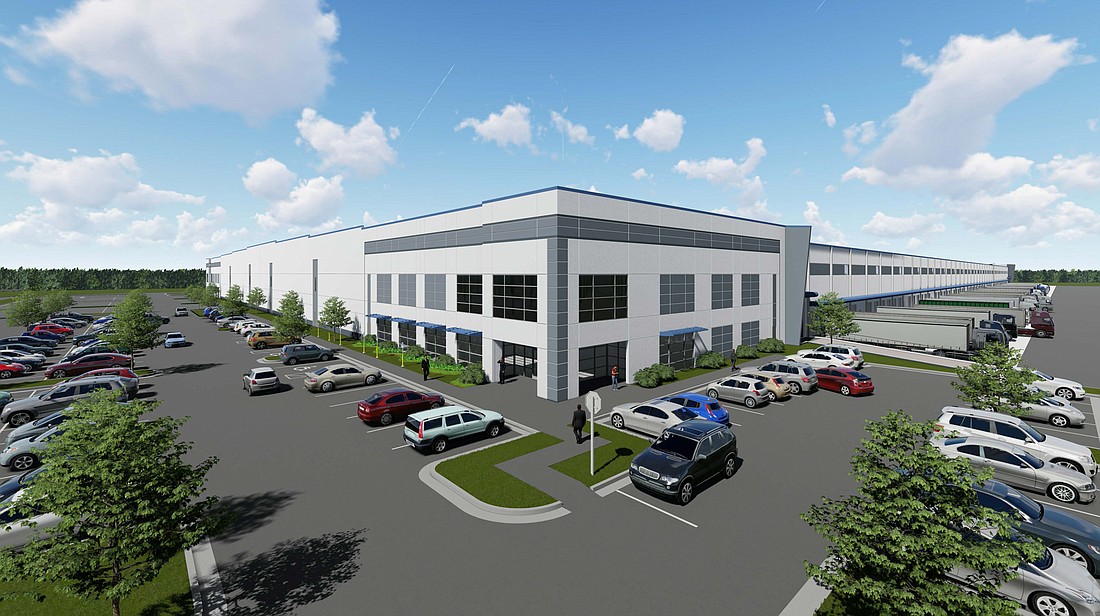- July 26, 2024
-
-
Loading

Loading

Talk about your adaptive reuse.
Transwestern Development Co. plans early in 2019 to transform a derelict 183.5-acre golf course in Lakeland into a Class A industrial park, targeting the kinds of e-commerce merchants that have been drawn to the Interstate 4 corridor in recent years.
University Park at Bridgewater will total 1 million square feet in all when complete, in two phases.
To underscore how strong Transwestern officials believe the industrial market in the Interstate 4 corridor between Tampa and Orlando is — vacancy stands at roughly 3.8% — the project will be developed on a speculative basis.
An initial phase will contain 713,000 square feet, and the building can be expanded by 292,000 square feet in a subsequent phase. Construction is expected to begin early next month, with delivery slated for the second quarter of 2020.
Transwestern officials and agents from commercial real estate brokerage firm Cushman & Wakefield, which is marketing the property, say the project’s size, relatively quick delivery date, proximity to I-4 and building specs will set the 6200 State Road 33 North project apart.
Perhaps most interesting, the project also may spark a wave of creative, infill redevelopment of functionally obsolete properties along the Gulf Coast.
“I think what makes this unique is that of all the competitive sites and product in the Lakeland area, ours will be the only project that can come in greater than 1 million square feet or even 700,000 square feet,” says Steve Kros, a Transwestern executive vice president and the Houston-based company’s regional partner for the Southeast U.S.
“Additionally, its access to Interstate 4 makes all the difference,” adds Kros, whose company is developing University Park in conjunction with a fund advised by Crow Holdings Capital Real Estate, which over the past two decades has acquired or developed more than $20 billion in real estate assets.
“Other than cost, perhaps, nothing is more important in this market than I-4 access, and our project will be less than a mile to an interchange. We think that will be viewed as superior to tenants.”
The $65 million to $75 million project’s building specs may also lure e-commerce tenants. University Park at Bridgewater will have 36-foot-clear ceiling heights, 185-foot truck courts and what Transwestern says will be “heavy” parking and trailer capacity.
In addition to the primary site, Transwestern controls an adjacent six-acre tract that can be used, at least initially, for parking.
Jared Bonshire, a Cushman & Wakefield senior director who helped negotiate the sale of the parcel to Transwestern and is working on University Park’s marketing along with a team of industrial specialists, says rents in the completed building will be in the $4.95 per square foot range on a triple net basis — meaning tenants will also pay for certain occupancy-related expenses.
“The rate is well in line with all of the other speculative industrial development that’s occurred in the I-4 corridor in recent years in the 400,000-square-foot range,” Bonshire says.
By comparison, he notes that at a recent Best Buy build-to-suit distribution project nearby, the electronics retailer pays well over $3 per square foot.
“I feel this is going to be the premier distribution location in all of Central Florida when it’s completed,” Bonshire adds.
University Park at Bridgewater comes as the size of big-box distribution and logistics requirements are increasing, and the number of deals for larger spaces are accelerating in the I-4 corridor.
“For many years, there was no evidence in this market of a demand for anything larger than 400,000 square feet,” Kros says. “If you were at that size, you were developing a multitenant building. Before 2014, throughout the entire corridor and the entire history of the market, there was just one deal that was larger — a Lowe’s distribution center totaling 1.3 million square feet built in 2004.
“Since 2014, though, by contrast, there have been seven buildings in excess of 600,000 square feet that have been delivered,” adds Kros, whose company also developed the two-building Lakeland Logistics Center, beginning in 2014. The project was sold to Cabot Properties in June.
“Amazon did two, Walmart did two, and there are other recent examples with Quaker Oats. “Clearly something has changed in that time, and what’s changed has been the advent of e-commerce.”
Online shopping, or e-commerce, has been predicated on the ability to get products purchased digitally into the hands of consumers in ever shorter time periods. In many cases, distributors today proffer same-day shipping to entice purchases.
For that to occur, distributors require central locations with sound road networks and proximity to major population centers. In the case of the I-4 corridor, distributors can reach more than 20 million consumers within a five-hours’ drive.
But as the I-4 corridor becomes crowded with distributors such as Publix Super Markets Inc., Medline, Rooms-To-Go, Southern Wine & Spirits, O’Reilly Auto Parts, DHL and others, developers like Transwestern will increasingly have to look to infill sites to redevelop.
In the case of University Park, the Golf Club at Bridgewater had been closed for a decade after falling into foreclosure.
With few prospects to make the links a going concern in the future, owner Whitney Bank took Cushman & Wakefield’s advice and pursued industrial buyers.
Bonshire says a pair of other contracts for the golf course fell apart over the past four years before Transwestern’s $3.75 million purchase was finalized.
“It took some very creative people to think outside the box and make this happen,” Bonshire says.
“And so now, while there may be many options for industrial space that could be considered in the corridor, there’s no one else who can deliver new space as quickly and in this size range.”